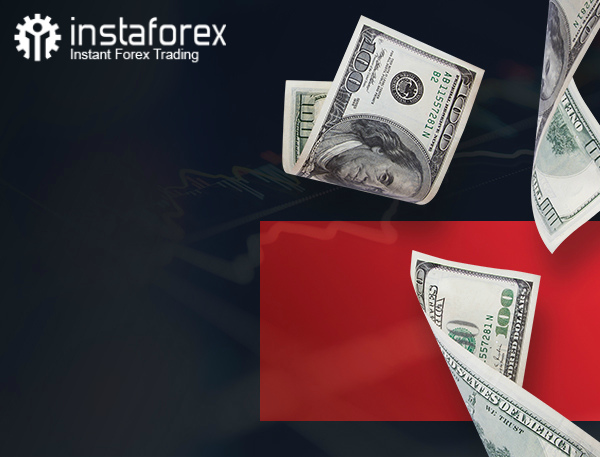Nowadays, Forex opens doors for everybody, who is eager to make money. However, before a newcomer ventures into forex trading, the essential thing is to pick a proper brokerage company. This article will tell you how to choose a reliable broker.
At present, a large number of forex brokers promote their trading services. Retail brokers are involved into fierce competition. They are trying to woo customers by offering a variety of trading opportunities and their own advantages. Importantly, to pick a truly reputable broker some key criteria will help you make a judgement. For example, a legal regulation and capitalization value can clearly indicate reliability and efficiency of a company.
At the same time, you should decide for yourself what trading conditions you are interested in. When choosing a forex broker, you should consider its trading style as this criterion will enable you to find out both broker’s advantages and dubious features.
Why do you need broker?
Unlike major players in financial markets, retail traders cannot enter the forex market directly because their direct access to international markets is impossible due to their modest financial capability. Therefore, a trader needs a forex broker, having access to financial markets and exercising the right to provide individuals with this access.
To start trading in Forex, there are two essentials: a trading account and software to manage an account, namely a trading platform. This toolkit is provided by a broker.
At first glance, everything seems to be quite simple. A trader should register a trading account, credit some money to a deposit, and begin trading. However, before opening a trading account, you should seek answers to some questions about a particular broker. Here they are:
- Are activities of the broker/dealer controlled by any supervisory authority?
- What is a difference between a broker and dealer?
- What is a capitalization value of the broker?
- Does the broker offer a reliable trading platform?
- What commissions does the broker charge?
- What types of trading accounts are available with the broker?
- Are you protected as a client?
First and foremost, before making a decision on a particular broker, please have a query about its reputation.
Are activities of the broker/dealer controlled by any supervisory authority?
You should be aware that not all countries have a similar legislation on forex activities. Every country has its own requirements for a financial company’s license. Thus, make sure you choose a brokerage company registered in the country where its activities are controlled by a supervisory agency.
Besides, bear in mind that most brokerage companies are registered in offshore zones, where requirements for broker’s activities are more flexible.
Importantly, it is wise to pick a broker registered in the country where requirements of supervisory agencies are strict. Among such countries are the US, the UK, Australia, Switzerland, countries of the euro area, and Japan.
Broker or dealer?
How to differentiate between a broker and dealing center?
A broker is a facilitator between a client and a market maker/dealer. With a broker, processing of client’s orders is carried out by special software without involvement of a dealing center. So, it is a so-called non-dealing desk.
Traders are offered spreads, which are determined by a market maker or dealer, which executes clients’ transactions. Usually, brokers charge for their services or get commissions for transactions, which are directed by a broker to a market maker’s dealing center.
What is dealer?
Every market maker works with a dealing center, which is used by most financial companies. During the whole trading day, market makers provide their clients with dual market prices, or in other words ask/bid prices. Some companies ensure fixed market quotes, it means that a spread remains the same during a trading day. Other companies offer floating spreads, so market prices change affected by variable liquidity of currency pairs.
Every market maker sets its price for a particular currency pair. The price is based on data of the global currency monitoring of this market maker. Banks, investments banks, brokerage companies, dealers, and other intermediary firms represent the bulk of market makers.
Revenues of market makers depend on their ability to manage their global forex risks. Spread payments, mutual profits, swap payments, and residual incomes make up revenues of major market players.
Broker’s capitalization value
A big capitalization value of a market participant makes it more attractive for liquidity providers. Besides, high worth of a company means that it can ensure competitive prices both to itself and its clients.
A broker often affirms that trading with it poses no risk to its clients because this company is operating in the interbank market. What does it mean? The interbank market is a self-regulated global financial network, where central banks, investment banks, and large financial institutions trade currencies between themselves.
If a broker is supervised by a regulatory agency, a capitalization value of this broker should be no less than a minimum requirement stated in the legislation. This proves solvency of a brokerage company. If a broker does not provide information on its capitalization, it should raise doubts about its solvency.
Charges and commissions
Unlike other financial markets, Forex rests on the principle that retail traders are not charged any payments or commissions for money exchange, intermediary activities, and market information.
Forex brokers charge three types of commissions:
- Fixed spread.
- Floating spread.
- Commission based on percent of spread value.
What exactly is a spread? A spread is calculated in pips, it means a difference between ask and bid prices of a currency instrument. It is a main trader’s expense and broker’s earning. A reliable broker cannot operate without spreads or commissions on traders’ operations.
As for execution of traders’ orders, a broker suggests two ways: market execution and instant execution. A high speed of order execution depends on smooth operation of a trading platform and instant connection with a trading server. Moreover, prompt processing of an order also enables its fast execution. If a broker cares about its clients, an order is carried out in a few seconds and processed automatically, not manually.
Trading platform
Nowadays, to work in Forex traders can choose from a variety of trading systems. Some of them have to be installed on a PC. Some can be used directly in a browser. Different companies develop trading software, or trading platforms, which have the same key functions despite some differences in an interface. So you should take notice of the following features when choosing a trading platform:
- The maintenance of steady connection and a maximum speed of data processing.
- Forecasts, analytical materials, and regular economic updates.
- The function of plotting charts and round-the-clock technical support.
Importantly, an interface is also an important criterion. It should be user-friendly and comfortable to use.
MetaTrader is still winning favor with traders as this trading software combines wisely all basic features. This trading platform ensures instant order execution. It allows traders to streamline their trading strategies, manage several accounts in parallel, and create their own technical indicators. A lot of other functions are also at traders’ disposal.
To judge efficiency of a trading platform, all you need is just open a live or demo account.
Money withdrawal and correspondent banks
Evaluating a broker, it is necessary to find out what ways a brokerage company offers to make deposits and withdraw money from accounts. Besides, a procedure for personality verification will shed light on a broker.
Cooperation with major international banks indicates that a forex broker is worthy of trust. In this case, it removes doubts that a broker provides up-to-the-minute market prices, derived from the interbank market, and has viable cash flow.
Are you protected as client?
When choosing a broker, a logical question arises if clients of this company are protected. Perhaps, you know that brokers can go bankrupt like banks. Moreover, performance of many brokers has already contributed to the dubious reputation of the whole brokerage business. This is the reason why traders do not trust unknown or newly-established companies.
Being aware of the fact, a lot of forex brokers are ready to give clients the opportunity to test trading on live accounts with a minimum deposit. For example, there are cent accounts, so traders can use them under the same conditions when trading with bigger money on standard accounts.
Above all else, you can always inquire about a broker’s performance searching for comments on Forex-related web resources. An unbiased rating of brokers is a good barometer at your disposal. On our website, you will find general information on a particular broker. Besides, you will be able to read and post comments, vote for your favorite broker, and share your trading experience with other users.










